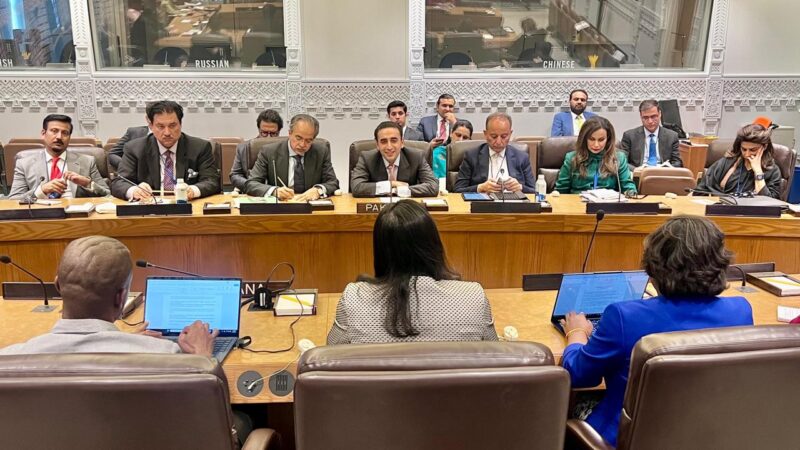Mumtaz Hussain
NEW YORK: In a diplomatic move, former foreign minister and PPP Chairperson Bilawal Bhutto Zardari voiced Pakistan’s serious concerns over recent Indian allegations at a high-level meeting with UN Security Council President Ambassador Carolyn Rodrigues-Birkett of Guyana.
Leading a parliamentary delegation to the United Nations from Pakistan, Mr. Bhutto Zardari addressed what he described as a dangerous and escalating pattern of blame and aggression by India in the aftermath of the Pahalgam attack. The attack, which shocked the region, was followed swiftly by Indian accusations directed at Pakistan – claims Mr. Bhutto called “baseless and irresponsible.”
“These allegations have been made without any credible investigation or substantiated evidence,” he said. “Rushing to judgment without facts not only damages bilateral trust but also undermines regional stability and the principles of international law.”
Mr. Bhutto pointed to India’s broader pattern of unilateralism, particularly its military strikes that have reportedly targeted civilian areas and infrastructure. “Such actions amount to a clear violation of international norms,” he stated, “and have created an alarming situation that demands urgent international attention.”
He further criticized India’s suspension of the Indus Waters Treaty, a historic agreement governing the shared river systems between the two countries. Describing the move as an attempt to “weaponize water,” he warned that dismantling such vital frameworks could have serious ramifications for regional peace and the environment.
Throughout the meeting, Mr. Bhutto Zardari underscored Pakistan’s unwavering condemnation of terrorism in all its forms, while emphasizing that Pakistan itself has suffered deeply from terrorism over the years. “A single terrorist incident should not be used as a justification for aggression. The response must be rooted in cooperation, not confrontation.”
Calling for de-escalation, he reiterated Pakistan’s proposal for an immediate ceasefire, the full restoration of the Indus Water Treaty, and the resumption of a comprehensive dialogue with India — one that places the resolution of the Jammu and Kashmir dispute at its core.
“The future of peace in South Asia,” he said, “depends on a return to dialogue, mutual respect, and adherence to international obligations — not inflammatory rhetoric or unilateral actions.”
Ambassador Rodrigues-Birkett, in her response, reaffirmed the Security Council’s commitment to the maintenance of international peace and security, assuring the delegation of the Council’s active engagement with developments in the region.
As tensions continue to simmer, Pakistan’s latest outreach at the United Nations signals a clear intent: to counter rising regional instability with diplomacy and dialogue – and to remind the world of the stakes in South Asia’s fragile peace.


Comments are closed.